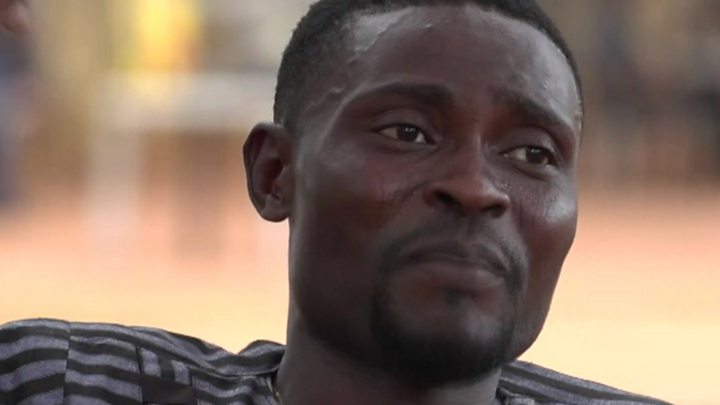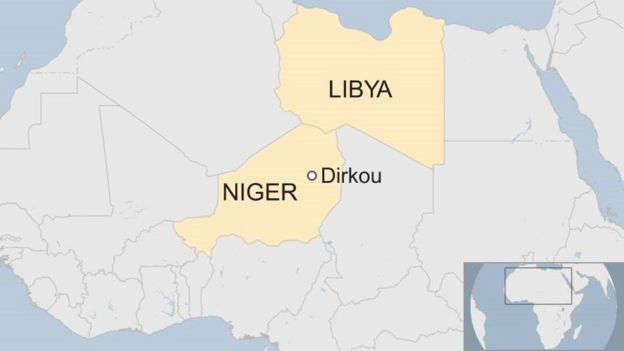BBC NEWS
Troops in northern Niger have rescued 92 migrants who were on the brink of death in the Sahara Desert, an army statement has said.
Troops in northern Niger have rescued 92 migrants who were on the brink of death in the Sahara Desert, an army statement has said.
Traffickers abandoned the group, which included women and children, without water and food, it added. One migrant died after being taken to a relief centre, the International Organisation for Migration (IOM) said. African migrants travel through the desert to reach Libya before crossing the Mediterranean Sea to get to Europe.
However, the journey through the desert is perilous as the migrants are crammed into pick-up trucks and have little food or water. More than 40 people died of thirst in the Sahara Desert about a fortnight ago after their truck broke down. And last June, the bodies of 34 migrants, including 20 children, were found in the Sahara Desert near Niger's border with Algeria.

The rescued migrants, who included at least 30 women and babies, were being looked after at a facility in the garrison town of Dirkou in northern Niger, the IOM said.
"Usually what happens in such situations is that smugglers try to exploit them," IOM head of mission Giusseppe Lopreta told BBC Focus on Africa. "They ask for more money when they are in the middle of the desert. If they don't pay, they are abandoned." He said the migrants - most of whom were from Nigeria, Ghana, Senegal and Burkina Faso - were saved because they were abandoned near a well.

The harsh Sahara: By Martin Patience, BBC News, Nigeria

The unforgiving conditions of the Sahara Desert mean that a broken down vehicle is often a death sentence for migrants. Niger serves as a transit point for West Africans hoping to reach Europe to start a better life.
Every year, tens of thousands of migrants cross the Sahara to reach Libya. From the Libyan coast they board rickety boats to ferry them to Europe.
Many drown in the Mediterranean but, perhaps, less well known, are the dangers they face while crossing the Sahara. It's not known how many deaths there are every year - as it's a vast, ungoverned region. But many migrants die of thirst, while others are robbed and attacked by criminal gangs and security forces.
No comments:
Post a Comment